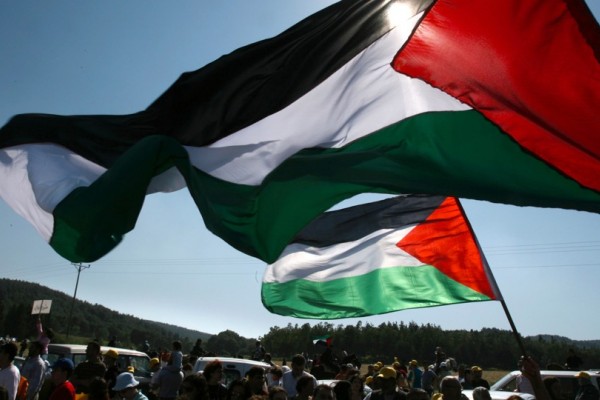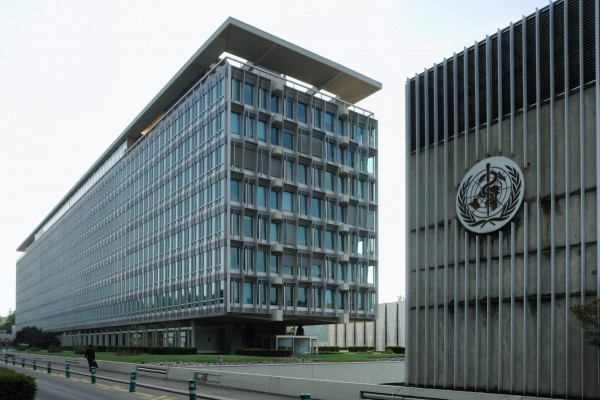A reply to B’nai Brith, and Canada’s UN vote
“B’nai Brith Canada claims to represent the vast majority of Canada’s approximately 330,000 Jews. I don’t think they do”

A Palestinian man looks out over settlements in the occupied West Bank. Photo by Anne Paq/ActiveStills.
B’nai Brith Canada (BBC) and its agency, the League for Human Rights, claim to represent the vast majority of Canada’s approximately 330,000 Jews. I don’t think they do—and I can’t believe it’s so. On matters related to Israel-Palestine, their positions and pronouncements strike me as morally shrivelled and mean-spirited, and liable to cast Jews, Jewishness and the Jewish people, of whom I am one, into disrepute.
A recent case in point: in the December 3 edition of the Canadian Jewish Record a commentary from BBC CEO Michael Mostyn is both factually incorrect and disingenuous.
Mostyn laments that, out of 17 “anti-Israel” resolutions recently voted on at the United Nations, Canada only voted against 16.
Pretty solidly pro-Israel—it would seem—were it not for that one yes vote affirming what bothers Mostyn the most (though he avoids coming out and saying it): the Palestinian people’s well-founded legal right to self-determination.
That one lone Palestine-sympathetic vote, alongside 16 pro-Israel ones, was “all the more galling” given Canada’s customary commitment to the “cause of peace,” Mostyn writes.
Quickly, though, he shrugs off the idea. Israel, he says, has recognized the Palestinian people’s right to self-determination for years, and has pitched numerous “generous” offers.
Really? Nothing has been more central to Benjamin Netanyahu’s interminable political career than thwarting the creation of anything resembling a truly sovereign Palestinian state west of the Jordan River, and his position is widely shared across the Israeli political spectrum. Among Mr. Netanyahu’s most recent pronouncements, at a Likud conclave last summer: “[In] no constellation will the government or the Knesset recognize the principle of establishing a Palestinian state.” Netanyahu has been saying this again and again for years.
Mostyn twists it around.
“Tragically, the Palestinian leadership consistently rejected [Israel’s offers] because—bottom line—they refuse to accept the idea of a Jewish state,” he writes.
This is false. Way back in 1988, in Algiers, the Palestine Liberation Organization accepted Israeli sovereignty over 78 percent of the lands Zionist militias had driven the Palestinian people from. It even acknowledged the Jewish people’s ancient connection to these lands—a huge concession, reconfirmed in Oslo, that Israel has never matched.
Instead, under the guise of lawful belligerent occupation, Israel has effectively annexed 60 percent of the remaining 22 percent slice, colonized it, in flagrant breach of the UN Charter and Fourth Geneva Convention (FGC).
Of course, Mostyn and his lobby group’s lawyers fiercely deny that Israel “occupies” “Judea” and “Samaria.” Their arcane arguments (with curious names like the “Missing Reversioner” and “Blum-Shamgar” theories) have been debunked by the International Court of Justice (Wall, 2004), the International Committee of the Red Cross (FGC curator) and by a host of eminent independent jurists. Among the latter, Theodor Meron, who, in the wake of Israel’s June 1967 conquest of the West Bank, told the Israeli government it was now an “occupant” under international law. The illegality of Jewish West Bank settlements has been reaffirmed in a dozen UN Security Council resolutions.
Mostyn claims, falsely, that UN Security Council Resolutions 242 (1967) and 338 (1973) call for “negotiations between the parties to determine the status of the territories.”
In fact, UNSC 338 called for “negotiations” between the parties “aimed at establishing a just and durable peace.” UNSC 242 affirmed the “inadmissibility of the acquisition of territory by war” (i.e. what Israel had just done), and the duty of UN member states to abide by Charter Articles 1 and 2—namely, the principles of “justice and international law” and “equal rights and self-determination of peoples.”
Neither resolution made reference to the “status of the territories,” now a matter of virtually universal consensus. UNSC 242 did call for Israel’s withdrawal from “territories occupied in the recent conflict,” an inconvenient legal fact Mostyn ignores.
Dodging matters of fact and law, Mostyn complains that six percent of Canadian support for “anti-Israel obsessions” at the UN constitutes a “shocking departure” from “principled” policies, for which “course-correction” is required.
Come on, Michael. Name me a government policy that hasn’t been ignored or trashed. Like, for example, Canada’s public policy on Palestine, per the Global Affairs Canada website: a) Israel is an occupying power in the West Bank, East Jerusalem, the Golan Heights and Gaza, b) Israel’s settlements are unlawful, and c) settlements impede the creation of a viable Palestinian state, that Canada insists is essential.
But forget about Canadian policy. The UN Charter and associated covenants strictly oblige Canada to “respect and ensure respect” for the law in “all circumstance.” The fact that it doesn’t—that it actually extends diplomatic and economic support to Israel’s de facto annexationist enterprise—is something Mostyn knows well and doesn’t bother him in the least.
Back in July 2017, he and his confreres (including the Centre for Israel and Jewish Affairs and MP Michael Levitt) pressured the Trudeau government into waiving enforcement of a handful of federal statutes—and its obligations under the 1985 Geneva Conventions Act and 2000 Crimes Against Humanity and War Crimes Act—so that Israel could claim sovereignty over stolen Palestinian land on Canadian store shelves, all the while concealing the criminal origin of its products from Canadian consumers (full disclosure: Attorney General of Canada v. David Kattenburg is now heading to the Federal Court of Appeal).
This—not the pursuit of some supposedly righteous “peace” policy—is what Mostyn cherishes the most. He has a hard time saying so. In his commentary, turning things upside down again, Mostyn equates Canada’s vote in support of Palestinian self-determination with the denial of the same right to the Jewish people (a very zero-sum approach).
“Absurdly,” Mostyn writes, the lands within which Palestinians supposedly enjoy self-determination include “the holiest sites in Judaism: the Western Wall and Temple Mount, plus the Jewish Quarter of the Old City; and everything else, east to the Jordan River.”
In other words, Mostyn thinks all lands between the river and the sea belong to Israel, “the world’s only Jewish state.” He doesn’t say—though clearly believes—that Jews are indigenous to these lands and ‘Palestinians’ are not. Israel’s current government and many Israelis are of this view, and B’nai Brith is Israel’s “staunch defender.”
Not a very righteous stance for someone claiming to represent Canada’s Jewish community (he doesn’t), of which I am a part. At the very least, Mostyn should come clean on his core propositions.
David Kattenburg lives in Winnipeg and is Jewish, but he doesn’t consider himself indigenous to the Land of Israel. He is a member of Independent Jewish Voices Canada and Scientists for Palestine.
A shorter version of this rejoinder originally appeared in the Canadian Jewish Record.










